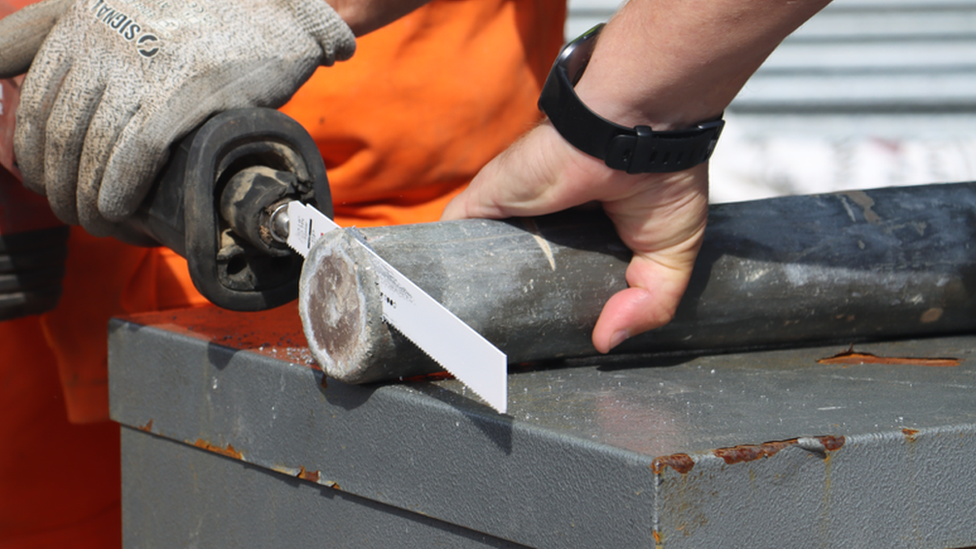Frazar Brabant: 3D printed skull ‘pivotal’ to murder convictions
- Published
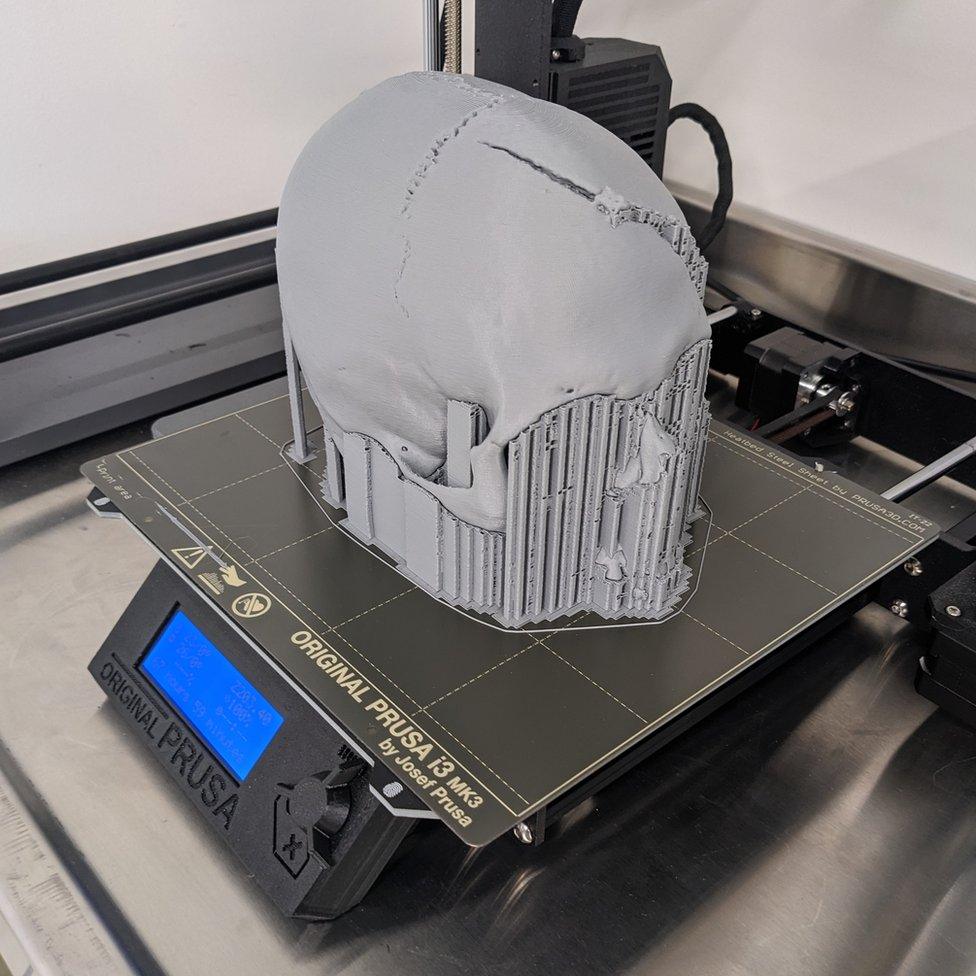
The model was made from polylactic acid with an internal scaffold to make it stable enough to be handled in court
A 3D printed skull has been described as "pivotal" to securing the murder convictions of four men.
The model was created by the University of Portsmouth to demonstrate injuries sustained by 31-year-old Frazer Brabant.
Mr Brabant was attacked in a garden in Basingstoke, Hampshire, on 31 October 2019.
Four men were convicted of murder on 7 June 2023, after an eight-week trial at Winchester Crown Court.
The University of Portsmouth's Dr Morgan Lowther, who helped print the skull using a digital model created by Hampshire and the Isle of Wight Constabulary's Imaging Unit, said it helped the jury to visualise the victim's injuries.
Mr Brabant, 31, was found lying in a front garden on Gershwin Road, Basingstoke, with serious head injuries.
The father-of-two spent almost three months in hospital before he died on 21 January 2020, meaning there were hospital-standard scans of his injury that were used to reconstruct the anatomy.
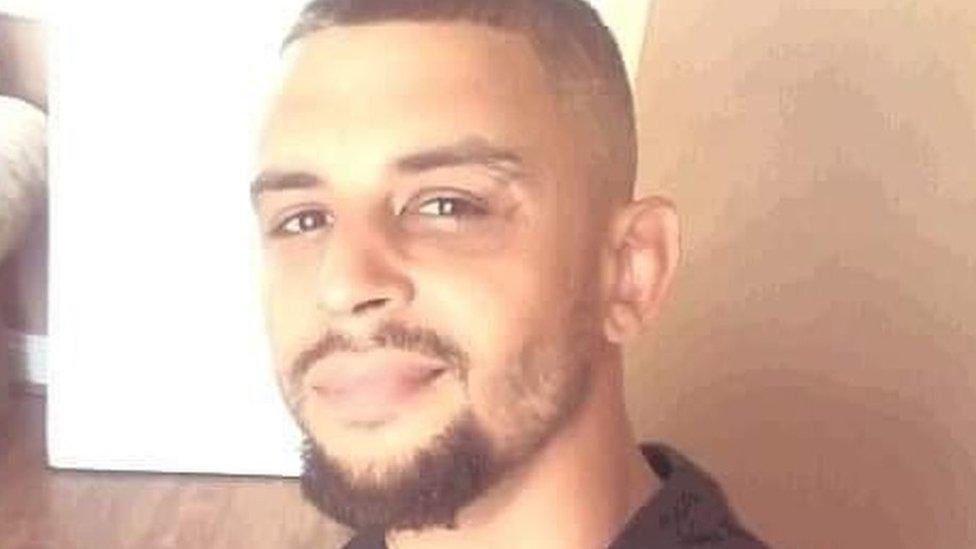
Frazer Brabant spent three months in a coma following the attack
Dr Lowther said the pathologist used the model to "guide the jury through the injuries sustained" by Mr Brabant, and the jurors were allowed to take it into the deliberation room.
"He was able to demonstrate the order in which the blows were likely to have occurred, whether they'd come at the same angle, and whether they would have come from the same assailant or the same weapon," he said.
"It was a valuable piece of evidence to help [the jury] understand the severity of the attack."
Forhad Miah, 32, and Scott Neale, 35, from Basingstoke, James O'Connor, 25, from Whitchurch, and Lee Wood, 32, were convicted of murder, and Ricky Lewis, 40, from Basingstoke, was convicted of conspiracy to cause grievous bodily harm with intent.
Detective Sergeant Dan Hunt said the skull was "pivotal" to the case going to court.
"This assisted us greatly in achieving justice for Frazer Brabant, his family and helped put offenders behind bars," he said.

Follow BBC South on Facebook, external, X, external, or Instagram, external. Send your story ideas to south.newsonline@bbc.co.uk.
- Published14 July 2023

- Published12 August 2023
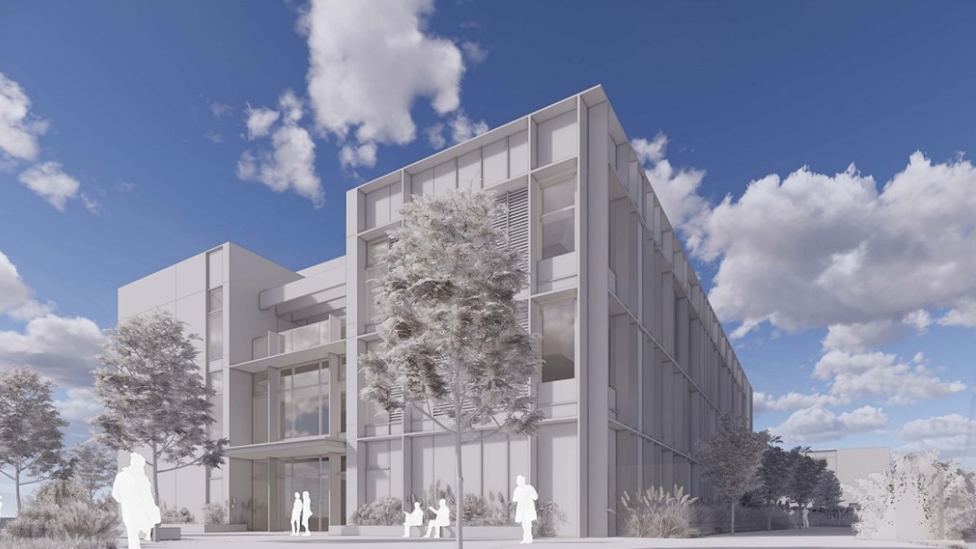
- Published18 February 2022
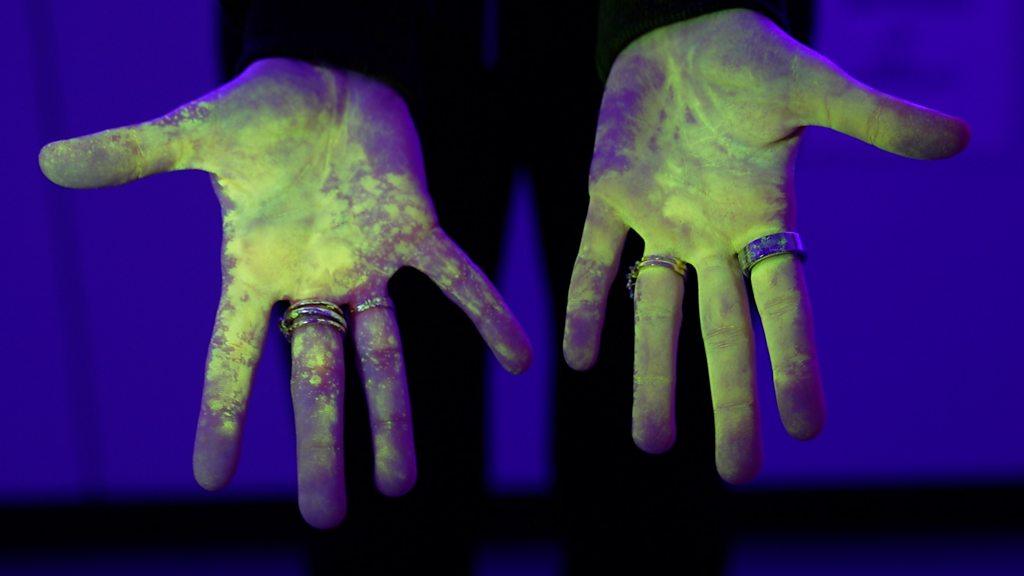
- Published2 July 2023
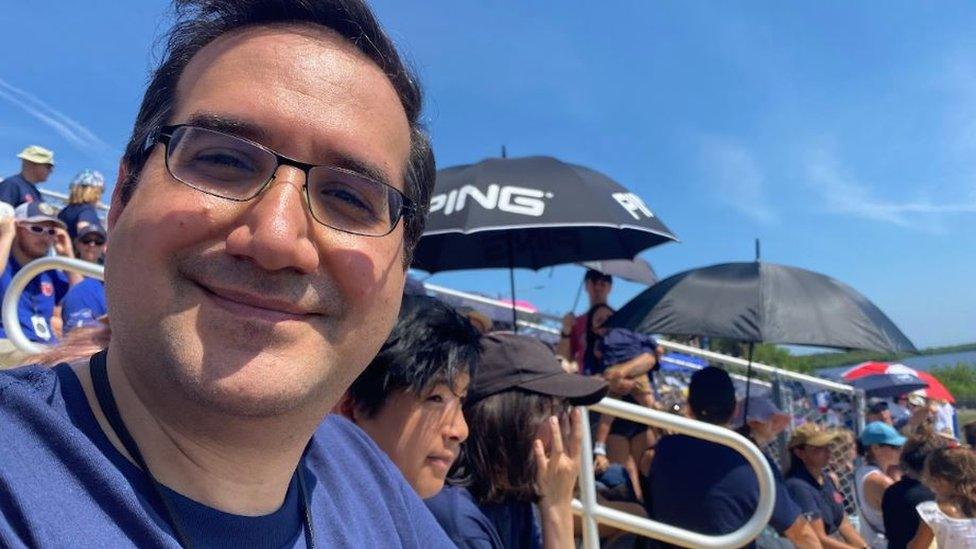
- Published11 July 2023
